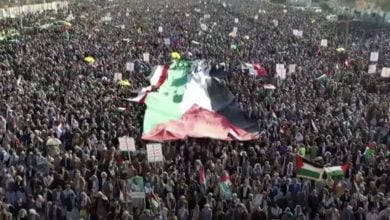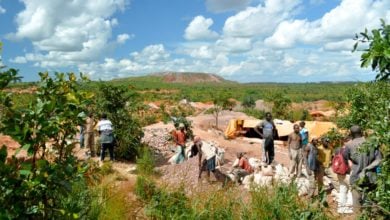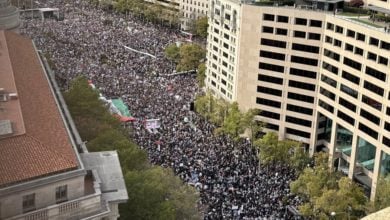Photo: Soldiers of the Nigerien army conduct a training exercise. Public domain.
On August 10, the Economic Community of West African States (ECOWAS) held an emergency meeting to deepen the war threats against Niger on behalf of U.S and French imperialism. ECOWAS, which groups together the pro-western governments of the region, reconvened after Niger’s new government resisted the bloc’s demand that it relinquish power to the ousted president by last Sunday.
In the outcome of Thursday’s meeting, ECOWAS stated that a regional military intervention is still on the table and announced that it was activating a “standby force” composed of military units from member states. ECOWAS has already announced sanctions and travel bans on Niger, which is heavily dependent on leading regional power Nigeria for its electricity. ECOWAS has also stated that any person or organization “whose actions hinder all peace efforts in ensuring the smooth and complete restoration of the constitutional order” will face sanctions, travel bans and asset freezes.
In a massive expression of the Nigerien people’s rejection of the imperialist-backed invasion plans, 30,000 people mobilized to the capital city of Niamey on August 6 in support of the new government. This was the same day that the ECOWAS-imposed deadline expired. Leaders from the governing National Council for the Safeguard of the Homeland (CNSP) spoke and were greeted by shouts and cheers of support from the large crowd. Mass sentiment and slogans at the rally revealed that people say “’no’ to foreign intervention” and clearly demand “French and U.S. troops out of Niger.”
Regardless of civilian support in Niger for the military, ECOWAS continues to scramble for a new plan to overthrow the transitional government in the name of “democracy.” Nigeria’s President Bola Tinubu stated at the summit that “no option is taken off the table, including the use of force as a last resort.”
Despite Tinubu’s dangerous escalation, not all countries in the region agree with ECOWAS’ plan. The governments of Mali and Burkina Faso have even said that they would go to war to defend Niger if need be. Guinea is also an ally of the new Nigerien government, and Algeria’s president Abdelmadjid Tebboune rejected the threat of intervention and called for mediation instead.
But ECOWAS is not the only one planning for intervention. After prominent U.S. official Victoria Nuland’s trip to the country last week in a failed attempt to threaten the country’s new leaders, she publicly commented that the United States will support ECOWAS to return Niger to “constitutional order.” The United States has approximately 1,100 military personnel in Niger and a massive drone base. Widely-despised former colonial ruler France has 1,500 troops in the country, ostensibly for counterinsurgency operations, but really present to facilitate the plunder of natural resources like uranium.
While the ECOWAS meeting took place, the CNSP rolled out a new 21-person cabinet. This was a show of resolve, demonstrating that the new government is determined to stay in place and implement an independent foreign and security policy.
All eyes are on Niger amid continuous threats of miliary invasion. The outcome of events will have a profound impact on the struggle across the region and all of Africa against neo-colonialism.






